Handwashing is one of the simplest yet most effective ways to prevent illness and protect everyday health. When done properly, both...
One of the six fundamental pillars of Yago School is the formation in Information and Communication Technologies, traditionally known as ICT We combine the psychology of education, the theory of collaboration and the use of technology to achieve human goals. The future of our graduates will involve complex problem solving, so we teach technology and people skills as the core educational focus in our challenge-driven curriculum.
Yago School promotes meaningful learning in Science and Technology. At our School, the teaching-learning process in science is based on experimentation and the students’ own experience, in other words, on learning by doing. They actively participate in their own learning: they analyse, question, test, investigate, reflect, draw conclusions, integrate theory and practice, work in teams and use technological resources in the process.
We teach our students not only how physical technology works, but how to produce it, how to code it, and how to improve its ability to address global challenges and human problems. This combination of skills is reinforced and connected to the rest of the curriculum by studying and designing with the Sustainable Development Goals (SDGs). To this end, we teach students how to coding and programming, offering a broad and sophisticated compulsory education from early years onwards to cover all of these areas:
And they learn all this through an innovative methodology that helps them to give it a practical, experiential, transdisciplinary approach and a real-life application:
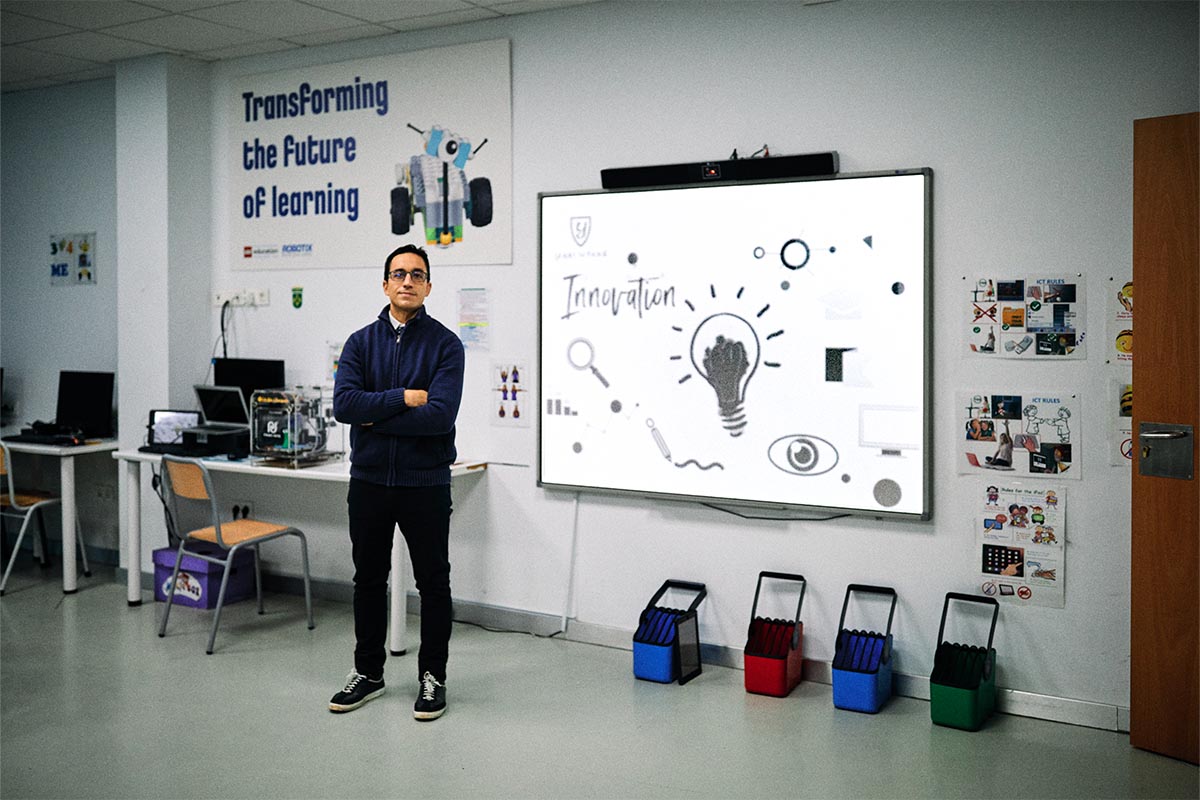
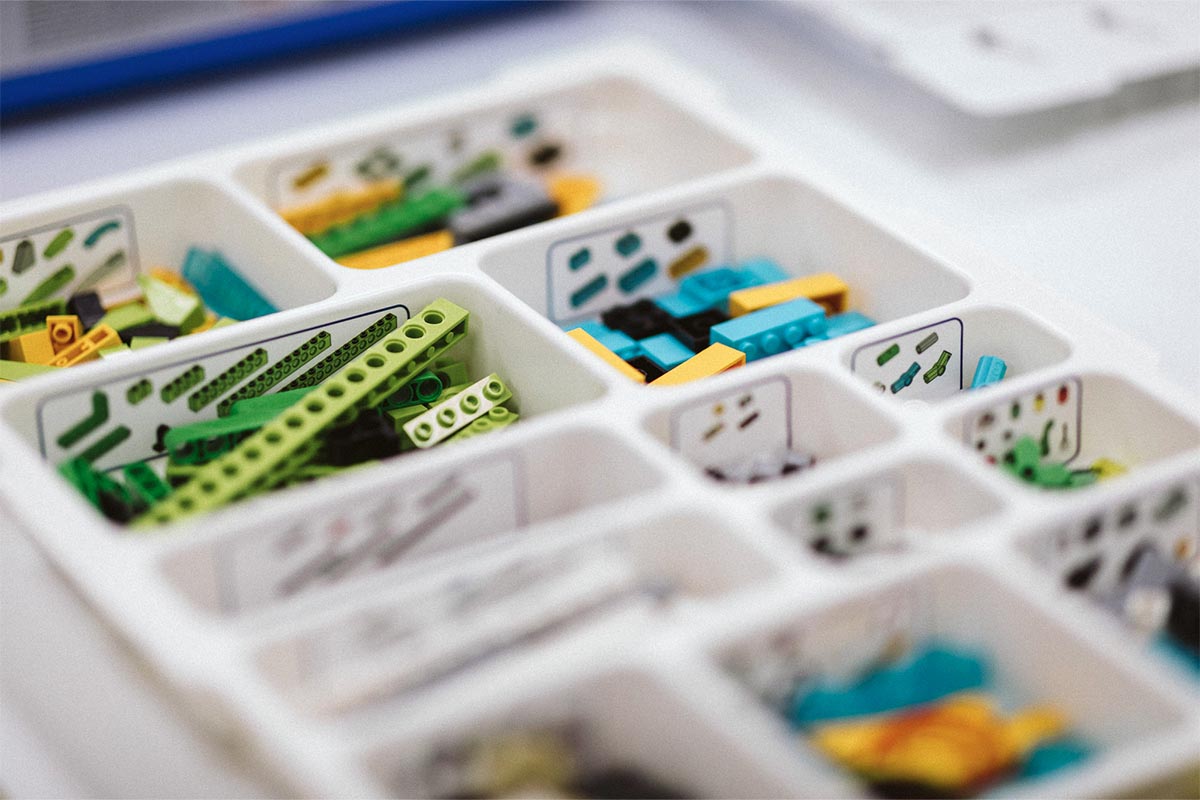
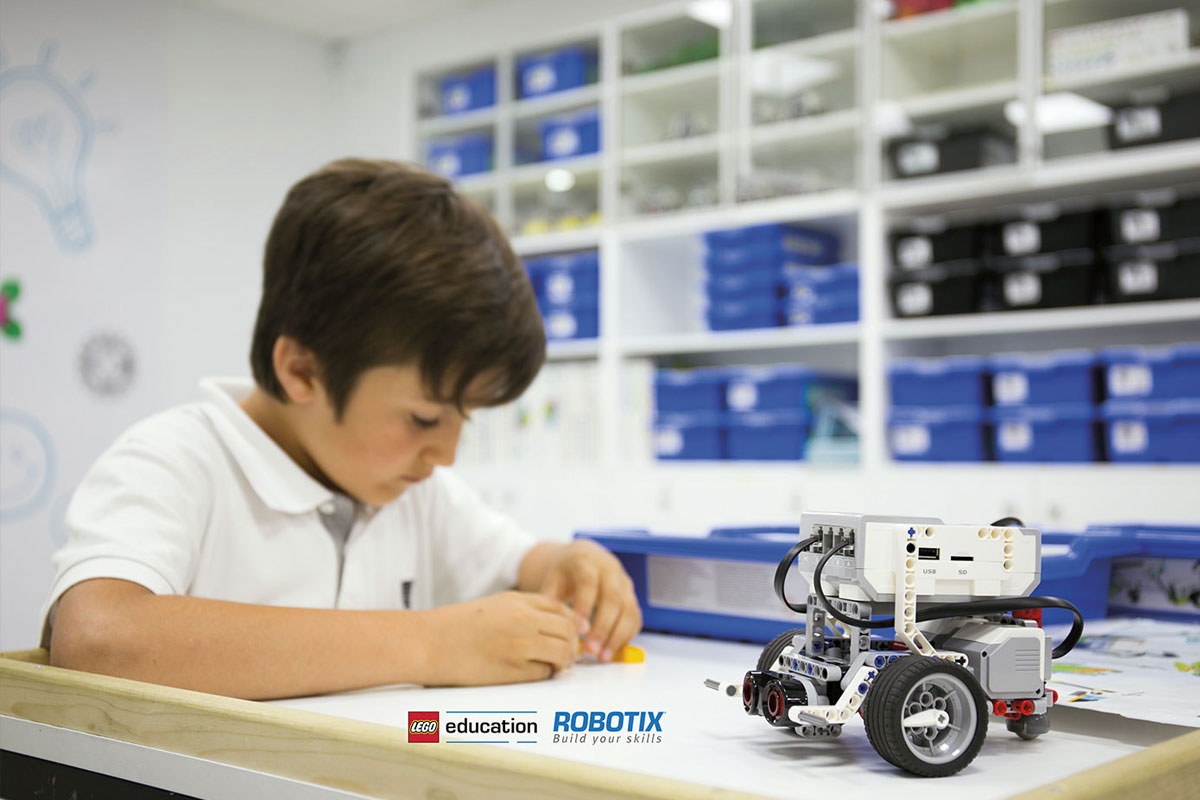
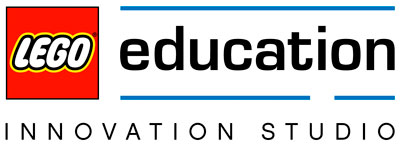
Yago School is the “L.E.I.S – LEGO EDUCATION INNOVATION STUDIO – ROBOTIX” in the south of Spain, that is to say, we are a school robotics laboratory certified by one of the official partners of Lego Spain.
In this way we reinforce our commitment to multidisciplinary and transversal projects, with a very practical training, where students work in a real way through experimentation in PYP (Infant and Primary) and Secondary.
We use different Lego resources: Duplo, Early Simple Machines, We Do 2.0, Powered and Simple Machines and even EV3 (Mindstorms); Duplo and Early Simple Machines mainly in PYP 2, 3, 4 and 5 (Infant 4 & 5, Primary 1 & 2) at different levels of difficulty and with different objectives; We Do 2.0 mainly from PYP 5 (Primary 2), even doing some examples and challenges at this level with Powered and Simple Machines.
We use different Lego robots to work on the construction-elaboration of projects previously designed by Lego through tutorials, or to develop our own projects or those of other subjects, so that we provide resources and transversal research to the students in the different phases of the PYP projects.
In PYP 6 and 7 (Primary 3 & 4) we mainly use Early Simple Machines, We Do 2.0 and introduce Powered and Simple Machines; and Simple and powered machines, Wedo 2 and EV3 for PYP 8 and 9 (Primary 5 & 6), and Secondary 1 & 2.
But robotics goes beyond Lego. In PYP 1 and 2 (Infant) we also work with Bee bots, and the rest of PYP and Secondary build their own robots or “Robots Maker” mechanisms, connecting mechanisms, motors, gears and many recycled materials.
"We must prepare young people for the working life of the future. These students will work in professions that do not yet exist and with the comprehensive technological training they receive at Yago School they will adapt to any environment and situation and will be able to understand social and environmental evolution from the basis of technology".
Lego allows us to complement the learning of content in all areas, not only STEAM, facilitating the understanding of content traditionally more abstract, but also helping to complement and reinforce other content that, although perhaps simpler to understand, it is also interesting to strengthen.
Students show more interest when approaching complex content to interpret and understand. It encourages cooperative learning and proactive communication among peers and allows the student to maintain effort and reflection.
Thanks to “L.E.I.S. -Lego Education Innovation Studio – Robotix” , students can see the results of their programming in an experimental and practical way. They build, program and see the results of their work, which motivates and amuses them in equal parts.
Lego helps us to develop learning processes based on:
Yago School is certified as a center that uses STEAM (Science, Technology, Engineering, Art and Mathematics) methodologies. It consists of the frequent use of interdisciplinary activities that bring students closer to Science and Technology in order to develop their creativity, imagination, critical thinking and problem solving.
Therefore, from technology and in the subjects of ICT or Design and Technology we work in different areas and disciplines, among which are Mathematics, Art and Science.
Our teachers are fully qualified and have years of experience in teaching ICT and work with enthusiasm to generate strategies adapted to each stage, with the aim of making every student at Yago School a little expert.
"In education, technology is generating the biggest paradigm shift of the last 100 years, bringing fascinating possibilities and providing great tools for knowledge and creativity; however, we must not forget to use it responsibly and understand technology as a means to grow as people and help improve the society we live in every day. This is the challenge".
They build their own methods and create their own particular scenarios, achieving innovative pedagogical strategies aimed at meaningful learning. In short, our teachers aim for students at Yago School to learn by creating.
"All students at Yago School receive an iPad from PYP 7 (Primary 4) and a MacBook Air laptop from Secondary 4 as part of our Y Project".
Our department wants to inspire future generations to find their way into science. A scientist is first and foremost curious. He likes to know how things happen and to find out by using all the tools he has at his disposal and developing those he does not have. A scientist is methodical, he leaves nothing to chance. A scientist reads incessantly what others have done before him and has an infinite capacity for work and effort. Qualities perfectly in tune with Yago’s student profile that we instill in our students, through all the projects and hands-on experiences in which they participate.
"Our laboratory at Yago School is equipped with the latest technology, which allows us to teach the fundamentals of science in a very practical way".
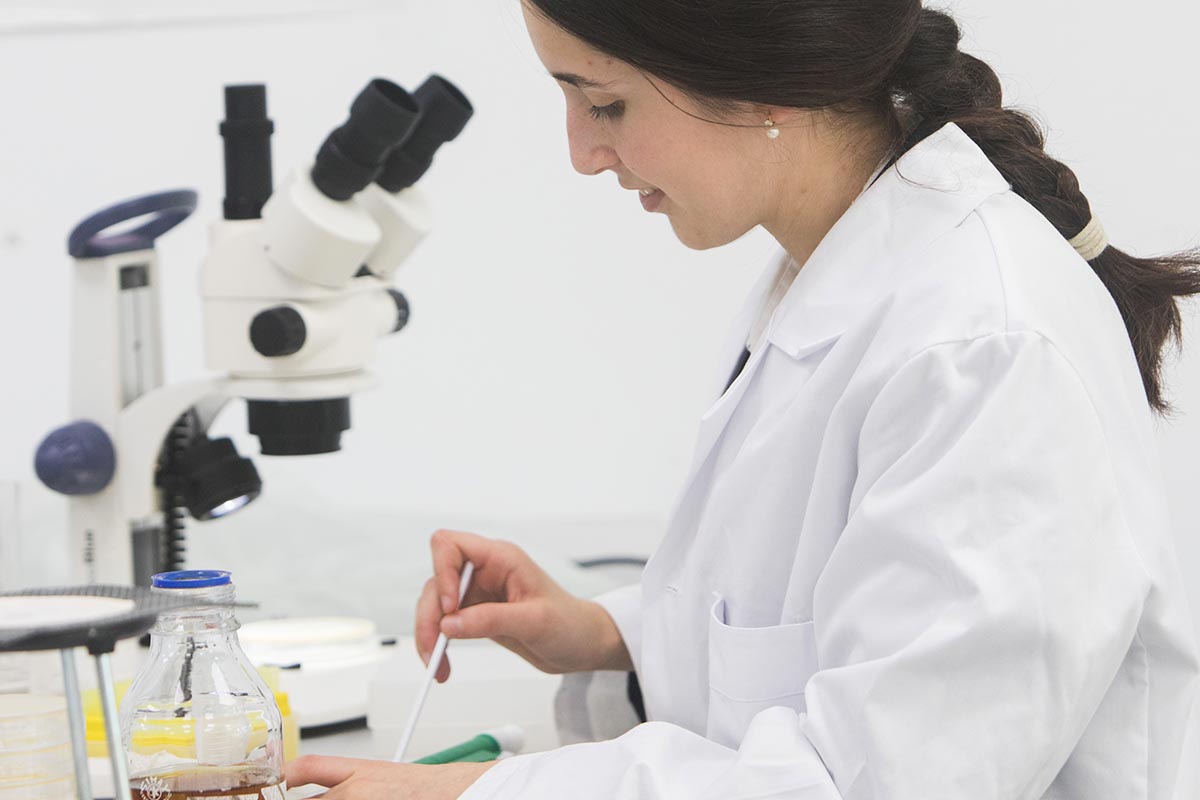
Every year Yago School students participate in this Fair organized by the Andalusian Society for the Popularization of Science and the Descubre Foundation. This Fair offers the presence of more than 100 entities among educational and research centers, universities, associations, institutions and companies. In line with the objectives of the School, all editions are fully committed to the Sustainable Development Goals (SDGs) as well as biodiversity. Each year, our Secondary and High School students carry out and present magnificent projects at the fair.
Every year, Yago School organizes a new edition of “Mobilize for the Rainforest”, promoted by the Roots and Shoots Association, led by high school students in the subject of Creativity, Activity and Service (CAS) of the International Baccalaureate Diploma Program. The project is always well received by our educational community.
"At Yago School we have outdoor spaces, with large natural areas where, in addition to the vegetable garden, pupils have contact with animals that are raised on the premises. Students learn through their own research, observation and practice".
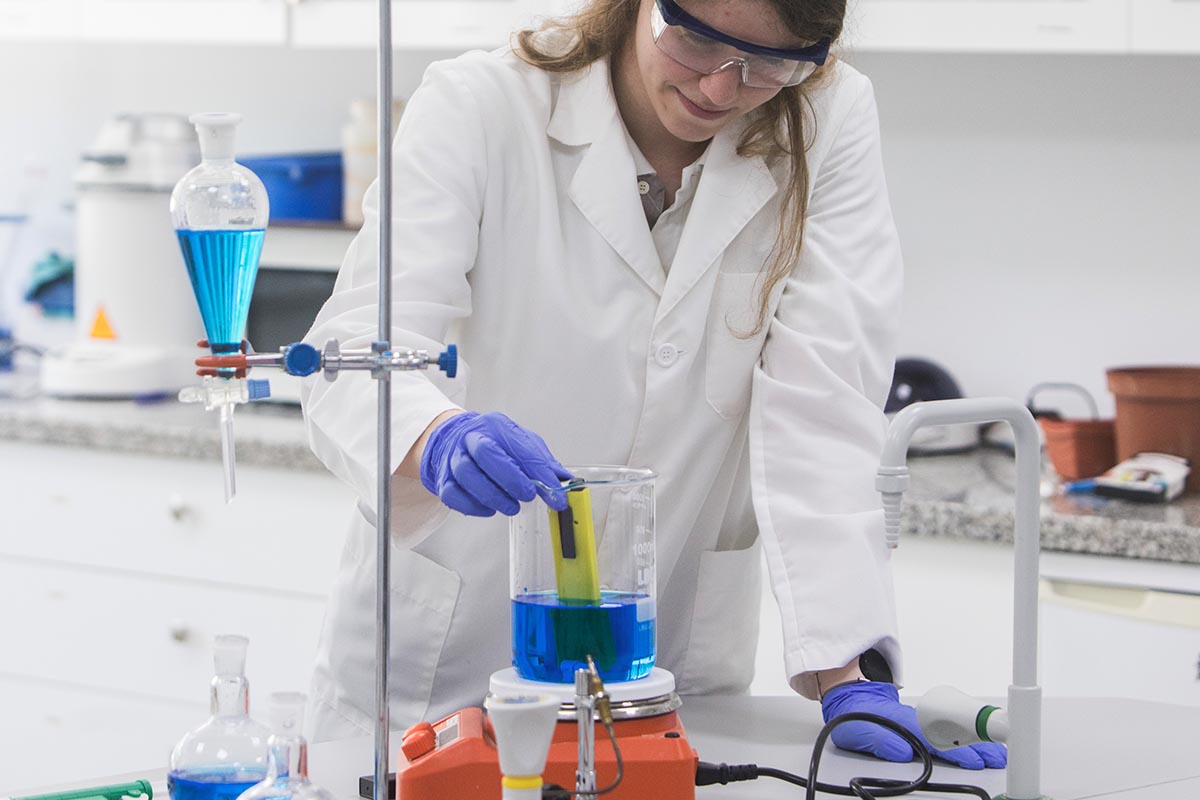
We celebrate this important day every year with our traditional talks to commemorate this important day. A group of female scientists from the Institute of Biomedicine visit the school and tell our students about their steps towards a scientific career.
Yago School has a vegetable garden that has allowed us to involve the students of Infant and Primary in all the steps, from sowing the seeds to harvesting them, as a basis for “Learning by Doing” or PBL learning and in line with our objectives of education for the respect of the environment and sustainable development.
“Our teachers are great and enthusiastic professionals, who enjoy learning and motivating our students in their daily learning, and in their love and respect for nature”.
Educational robotics is part of our curriculum from the early stages of the school process, starting from Infant. We work on fundamental objectives, such as communication, encouraging the development of language and creativity; logical skills, developing their psychomotor skills through construction; achieving a greater ability over time to solve problems; and initiating the youngest to use robotics as fun and as a tool to learn and solve problems.
Lego robotics allows them to learn to enjoy solving challenges and difficulties, manage emotions with greater stability in challenges outside their comfort zone, helps them to acquire practice in the use of divergent thinking or cognitive processes, allows them to use the scientific method in the search for solutions, etc. and ultimately, forms them as more multidisciplinary people with better knowledge in current trends and technological demands, such as robotics, which will allow them to access greater challenges in the future and contribute more easily to an increasingly technological society. Mainly, it helps them to be more open-minded in interpretation and search for solutions and calm and autonomous when facing problems.
From the age of 4-6, our students are introduced to robotics and programming and other technological areas. They learn by playing with Bee-Bots and Legos, and through different types of platforms or programs, such as Scratch, Tinker, Code, Codespark, Bee-Bot and We Do 2.0 apps, etc.; working on logical thinking, visual-spatial organization, pre-computational thinking and using the first programming languages based on visual and simple blocks adapted to their age through which they generate their first algorithms or sequences and instructions.
We have two digital printers, one for students from 4 to 11 years old and the other for students from 13 to 18 years old, which they can use with the supervision of the teacher, not only in the subjects of Design & Technology, but also for projects in other areas or subjects.
We have a science laboratory equipped with all types of chemical compounds, and cabinets containing flammable and corrosive compounds. In addition, there is an extraction hood and the necessary equipment to handle them.
Do you want to know more about our School? Don’t miss out on our blog with articles related to the activities of our School.
